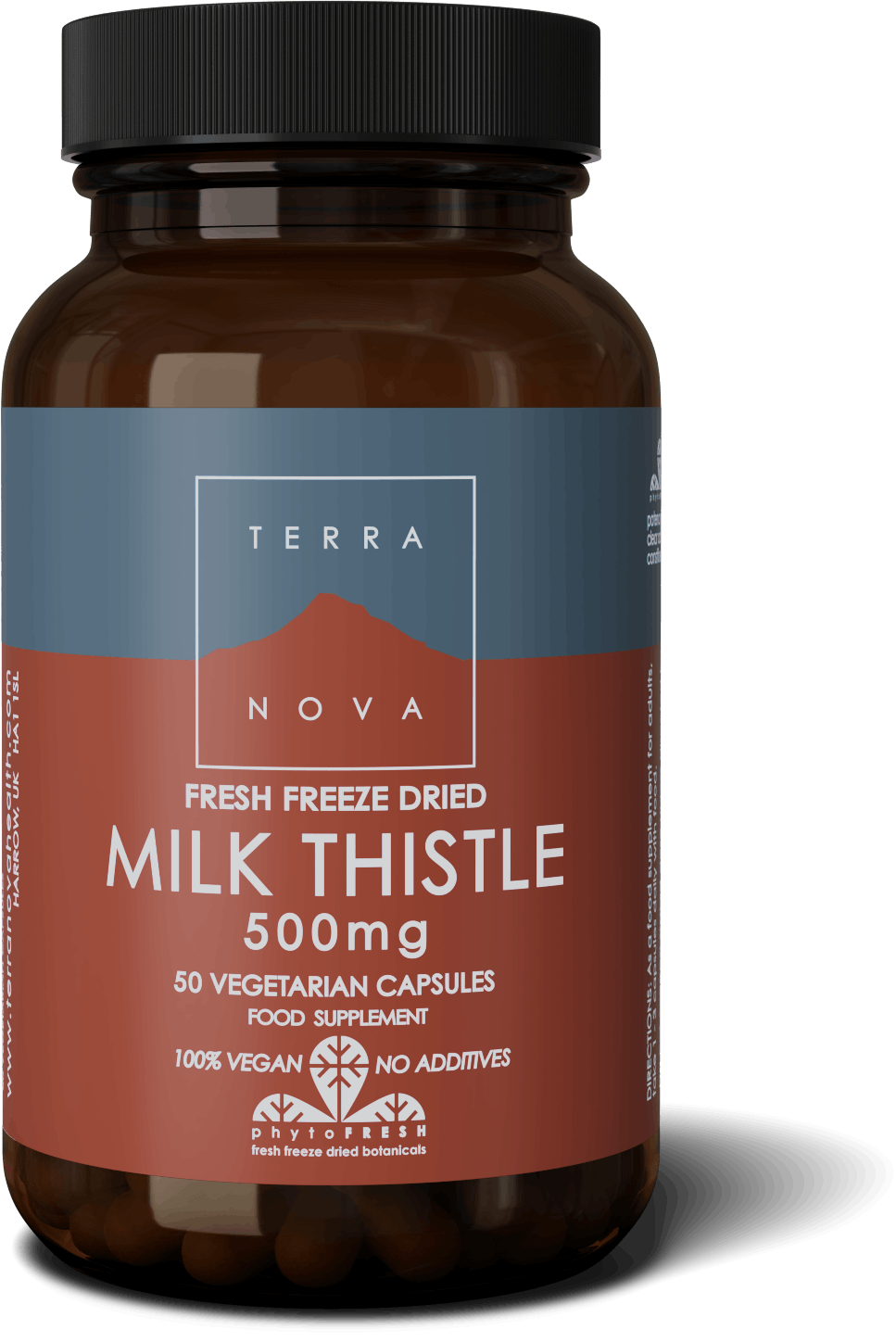Milk thistle
Milk thistle, known scientifically as Silybum marianum, is a flowering plant renowned for its medicinal properties, particularly in supporting liver health. Traditionally used for over 2,000 years, milk thistle is valued for its active compound, silymarin, which is rich in antioxidants and has anti-inflammatory properties. Modern research suggests that milk thistle may offer benefits beyond liver health, including potential antidiabetic, and cardioprotective effects. Key studies highlight its safety and efficacy in clinical trials, though more rigorous research is needed to fully establish its benefits. Milk thistle interacts with the body by protecting liver cells from toxins and promoting cellular repair.
Key Facts About Milk Thistle
- Liver Protection: Milk thistle is primarily used to protect the liver from toxins and support liver health, particularly in conditions like cirrhosis and hepatitis.
- Active Compound: The active ingredient in milk thistle is silymarin, a complex of flavonoids known for its antioxidant and anti-inflammatory properties.
- Traditional Uses: Historically, milk thistle has been used for liver and gallbladder issues, as well as to treat jaundice and promote milk production in nursing mothers.
- Potential Benefits: Research suggests potential benefits in managing diabetes, reducing cholesterol levels, and offering anticancer effects.
- Safety Profile: Milk thistle is generally considered safe with minimal side effects, though it may interact with certain medications.
- Modern Applications: It is used as a dietary supplement and sometimes added to skincare products for its antioxidant properties.
What does the research say about Milk Thistle and its effects on the body?
Research indicates that milk thistle, particularly its silymarin content, offers hepatoprotective effects by shielding liver cells from toxins and promoting cellular repair. It also shows potential in managing diabetes and reducing cholesterol levels, though more research is needed to confirm these benefits. Clinical trials have demonstrated its safety and efficacy in liver health, but high-quality studies are required to fully establish its effects on other conditions.
How is Milk Thistle traditionally used?
Traditionally, milk thistle has been used to treat liver and gallbladder disorders, including jaundice and hepatitis. It was also used to promote milk production in nursing mothers and as a remedy for snake bites. In Europe, it was valued for its ability to treat biliary duct inflammation and haemorrhoids.
How to consume or apply Milk Thistle?
Milk thistle can be consumed as a dietary supplement in capsule or tablet form, often standardized to contain 70-80% silymarin. It can also be made into a tea from the seeds or leaves. Some skincare products incorporate milk thistle for its antioxidant properties.
Are there any known side effects or precautions when using Milk Thistle?
Milk thistle is generally well-tolerated with minimal side effects, such as mild gastrointestinal upset or allergic reactions. However, it may interact with certain medications, so it's advisable to consult a healthcare provider before use, especially for those with chronic conditions or taking prescription drugs.
How long does it take to see the benefits of Milk Thistle?
The time it takes to see benefits from milk thistle can vary depending on the condition being treated. For liver health, some studies suggest improvements in liver function tests within a few weeks to months. However, consistent use and monitoring are recommended to assess its effectiveness.
What to look for when purchasing Milk Thistle products?
When purchasing milk thistle products, look for supplements that are standardized to contain a high percentage of silymarin (typically 70-80%). Ensure the product is from a reputable manufacturer and follows good manufacturing practices (GMPs) to guarantee quality and purity.
Can Milk Thistle help with weight loss?
There is limited scientific evidence to suggest that milk thistle aids in weight loss directly. However, its potential benefits in improving liver health and metabolism might indirectly support weight management efforts.
Does Milk Thistle interact with other medications?
Milk thistle may interact with certain medications, such as blood thinners and diabetes drugs, due to its effects on liver enzymes. It's crucial to consult with a healthcare provider before using milk thistle, especially if you are on prescription medications.
Can Milk Thistle be used for skin health?
Milk thistle's antioxidant properties make it a potential ingredient in skincare products, though its direct benefits for skin health are not extensively studied. It may help protect the skin from oxidative stress and inflammation, but more research is needed to confirm its efficacy in this area.




